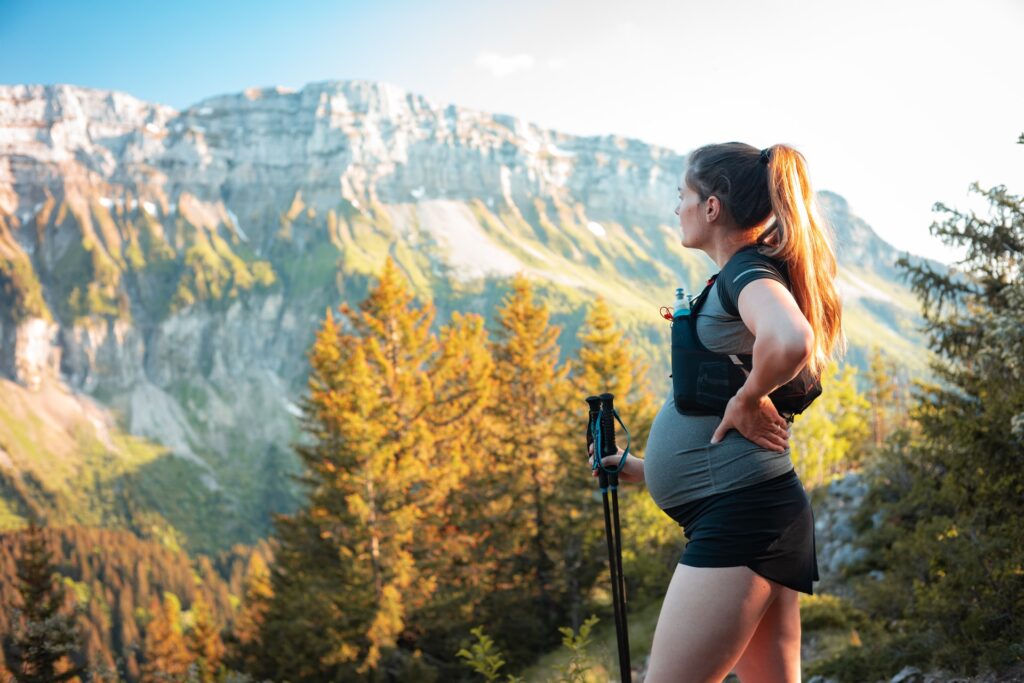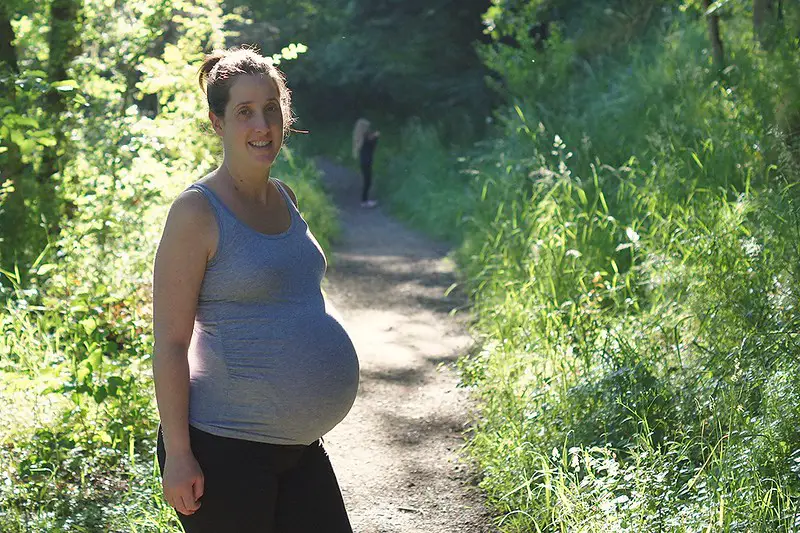Hiking a 14er (a mountain peak with an elevation of at least 14,000 feet) is a popular activity for many outdoor enthusiasts. However, for women who are pregnant, additional safety concerns arise. If you’re wondering is it safe to hike a 14er while pregnant, then you’ve come to the right place.
While pregnancy can limit a person’s physical abilities, the desire to experience the beauty and challenge of hiking a 14er can be tempting. Our team of experts compiled research and first-hand knowledge on the safety of hiking a 14er while pregnant. We will also provide recommendations for those who want to pursue this activity.

Understanding the Risks of Hiking a 14er while Pregnant
Hiking can be physically demanding, especially when it involves climbing to high elevations. During pregnancy, the body goes through several changes, which can affect a woman’s ability to hike safely.
The most common risks associated with hiking while pregnant include dehydration, hypothermia, and altitude sickness. Additionally, hiking can cause physical stress to the joints and muscles, which can be harmful to the developing fetus.
Factors to Consider Before Hiking a 14er While Pregnant
When deciding whether or not to hike a 14er while pregnant, it is important to consider several factors.
- Overall health and physical condition: If a woman has a history of medical conditions or complications during pregnancy, it is recommended that she avoid hiking.
- Stage of Pregnancy: Risks associated with hiking increase as the pregnancy progresses, so this must be taken into account.
- Prior 14er Experience: If you’ve never hiked a 14er before, we strongly recommend postponing the activity to a better time. Hiking a 14er for the first time is always strenuous and gets easier the more you climb

Tips for Safe Hiking while Pregnant
For women who are determined to hike a 14er while pregnant, there are several tips that can help make the experience safer and more enjoyable. F
irst, it is important to start slow and gradually increase the intensity of the hike. This will help the body adjust to the physical demands of the hike and prevent injury.
Additionally, it is important to bring plenty of water and snacks to stay hydrated and nourished during the hike. Wearing appropriate clothing and footwear can also help prevent injuries and keep the body warm.
Preparing for 14er Altitude Sickness While Pregnant
Altitude sickness is a common risk for hikers, and can be especially dangerous for pregnant women. Symptoms of altitude sickness include headache, nausea, and shortness of breath.
To prepare for altitude sickness, it is important to acclimate to the higher elevations slowly and to stay hydrated. If symptoms do occur, it is important to stop hiking and descend to a lower elevation immediately.
Seek Medical Advice Before Hiking 14er Pregnant
Finally, it is always important to seek medical advice before hiking a 14er while pregnant. A healthcare provider can assess a woman’s individual health and provide guidance on whether or not it is safe to hike.
Additionally, a healthcare provider can provide recommendations on how to stay safe during the hike and what to do if symptoms of altitude sickness or other health issues occur.
A Rewarding Experience
Hiking a 14er while pregnant can be a rewarding experience, but it is important to consider the risks and take appropriate precautions.
In review, it’s important to abide the five steps:
- Understand the risks
- Be honest with yourself about personal health
- Consider the stage of pregnancy
- Prepare for altitude sickness
- Seek medical advice
By using these self checks you can make the best decision about hiking a 14er.
However, for women who are pregnant or have other medical conditions, it may be safer to avoid hiking a 14er and seek alternative outdoor activities. The safety of the mother and baby should always be the top priority when considering if it is it safe to hike a 14er while pregnant

